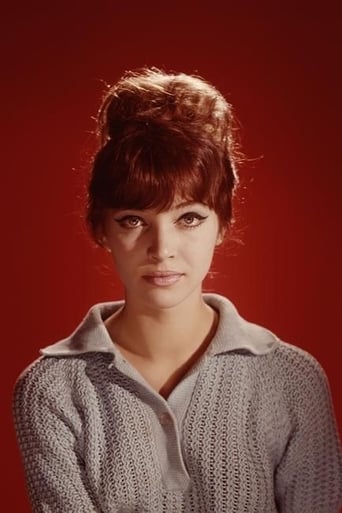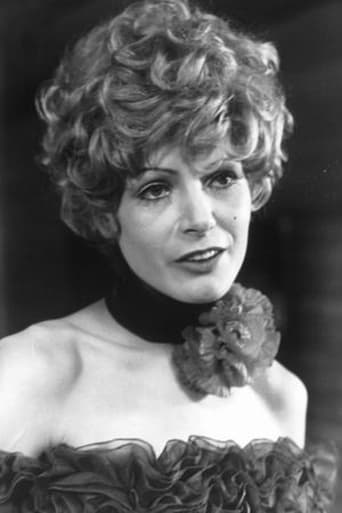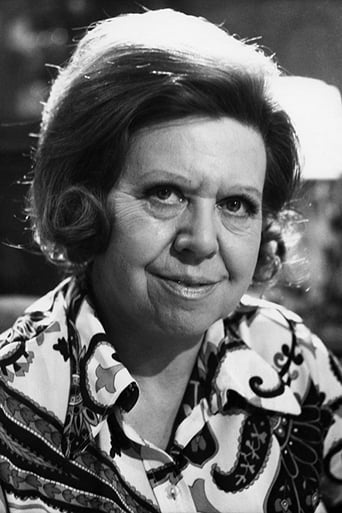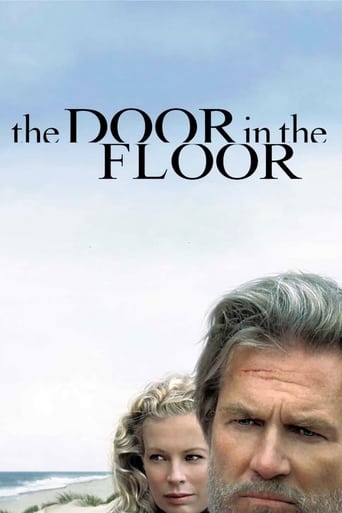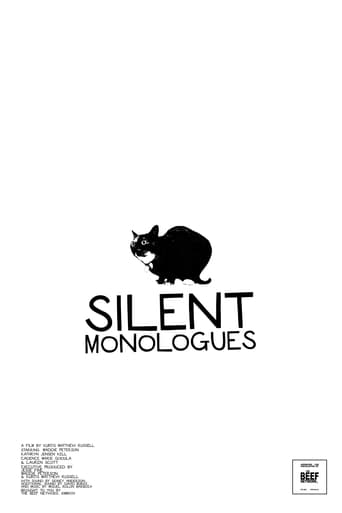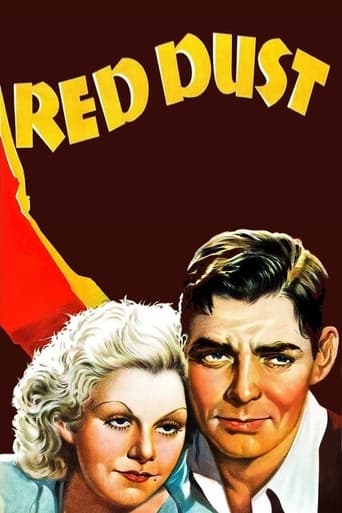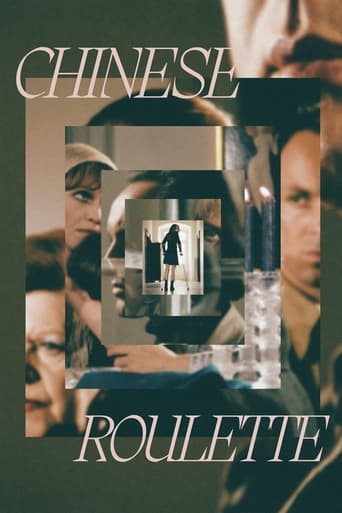
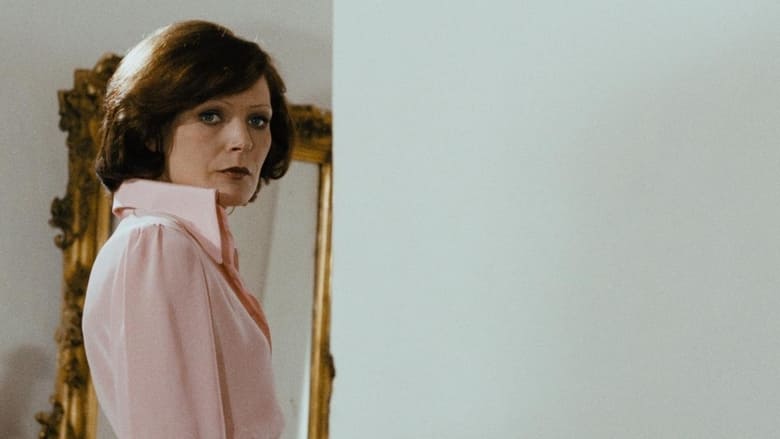
Chinese Roulette (1977)
A husband and wife lie to each other about their weekend travel plans, only to both show up at the family's country house with their lovers.
Watch Trailer
Cast
Similar titles
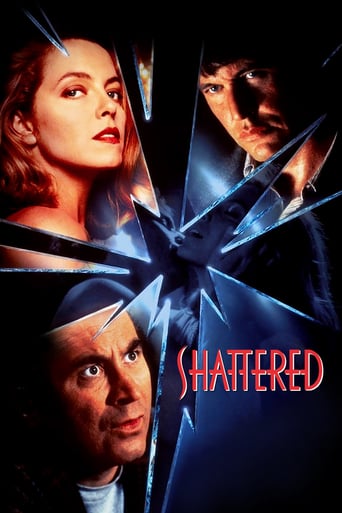
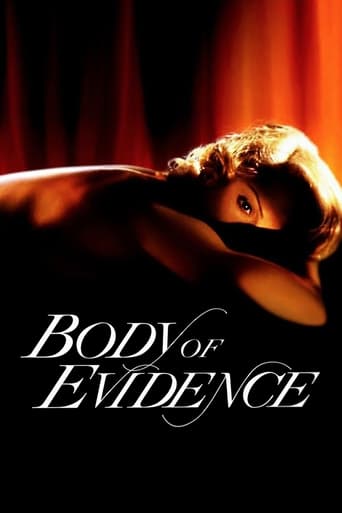
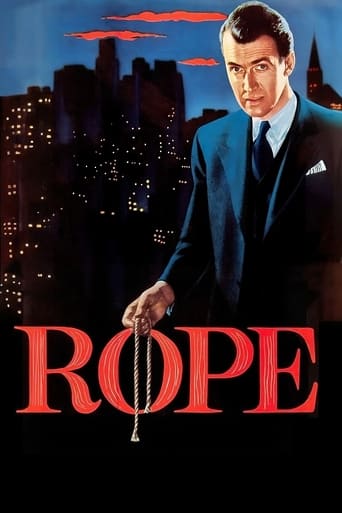
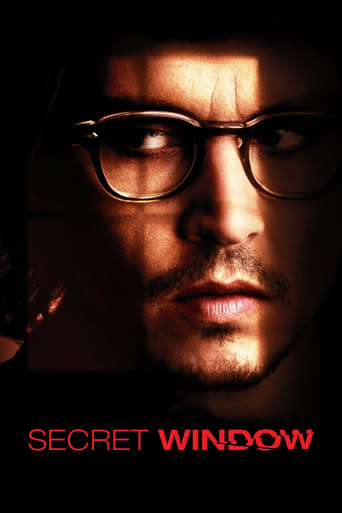
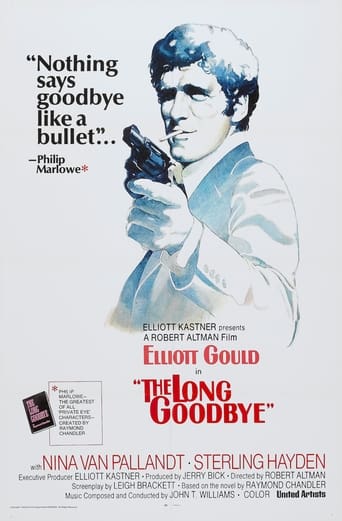
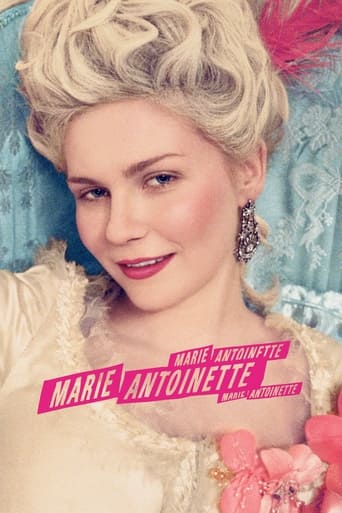
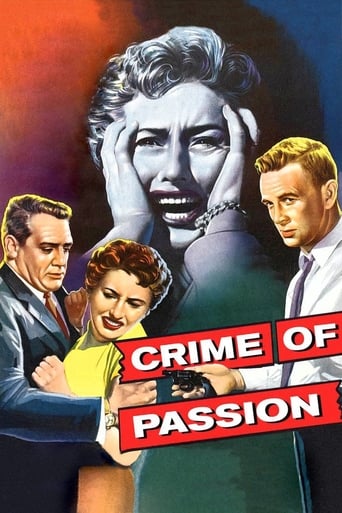
Reviews
Too much of everything
Simply Perfect
Great Film overall
When a movie has you begging for it to end not even half way through it's pure crap. We've all seen this movie and this characters millions of times, nothing new in it. Don't waste your time.
A R.W. Fassbinder double-feature binge (Chinese ROULETTE 1976 and QUERELLE 1982, his swan song) coincides with a starting point for me to access his oeuvre, as one of the pioneer of modern German cinema, Fassbinder has a burning-too-fast career orbit, as if he was exerting all his energy in cranking out films before his dooming self-indulgent suicide at the age of 37 (with more than 40 works done in 15 years). Yet two films must have its restricted view, but Fassbinder films' mindset nevertheless more or less could be conjectured from them, and his stylish flourish is also mesmerizingly toxic. Both films could adopt themselves comfortably into a theatrical play not the least courtesy of their (mostly or exclusively) in-door locales, for Chinese ROULETTE, it has a secular tone, 90% of the film takes place inside a rural mansion, with familial secrets, connubial deceptions, mother-daughter hatred, the divide of social strata, vindictive self-destruction viciously unfold and infuse a deleterious corruption even to the onlookers, all is triggered by the innocuous eponymous game. While QUERELLE is projected on more ritualized dark amber light sepia background setting stimulating a claustrophobic oppression of lust and desire within a handful locations (the faux-deck of a ship ashore, the phallus worship Hotel Feria Bar, an underground tunnel for hideaway), a male-dominant sexual obsession mingled with blatant homosexual thrust to an astounding incestuous extremity, brilliantly done via an intuitive candor. Mirror is a recurrent item in both films, exposes the other-half which reflects the true id inside one's soul, in Chinese ROULETTE the stunning flux of the stationary tableaux interlacing two or three out of the eight characters orchestrates a scintillating picture of a guilt-and-punishment visual symphony with swishy panache; in QUERELLE, mirrors reduce their occurrence but the conscientiously measured compositions transpire an even more ostentatious narcissism with a sultry plume of hormone-excreting rugged contours of male bodies. QUERELLE is adapted from Jean Genet's novel "QUERELLE DE BREST", whose literature text also introduced through the soothing voice-over of an unknown narrator, the film does stage a sensible amount of poetic license to filter a vicarious compassion through a singular mortal's inscrutable behavioral symptoms; in Chinese ROULETTE, a prose (or poem) soliloquy of androgyny also contrives to reach the same effect (but sounds a trifle recondite when contextualizing it under the film's incumbent situation). Anyhow Fassbinder is a trailblazer in defying the mainstream's prejudices, and very capable of visualize and dissect the tumor of humanity. The cast, there are 8 characters in Chinese ROULETTE, with almost equal weight in the screen time, but it is the youngest one, Andrea Schober (under Fassbinder's guidance for sure), the crippled girl seeks for revenge to her parents' betrayal and negligence, teaches all of us a lesson (how selfish we are to find a scapegoat for every bit of repercussions happen to us) with such acute insight, fearless audacity and extreme measures. While big name (Anna Karina) and other Fassbinder's regulars (Margit Carstensen, Brigitte Mira, Ulli Lommel) all end up licking their own wounds in the corner. In QUERELLE, Brad Davis (a real-life AIDS fighter then) is valiant, his masculinity and sinewy physique defies all the stereotyped treatment of gay men in the media, injecting a raw and visceral complexity into Querelle's spontaneous promiscuity and sporadic anger. Hanno Pöschl may fall short to guarantee the vigorous duality required for his two roles, but the gut- bashing combats (or playing) between two brothers fabricate the most erotic intimacy has ever been presented on the screen. Two veterans, Franco Nero is either recording his secret affection in the cabinet or wandering near Querelle from oblique angles; the fading beauty Jeanne Moreau, hums "Each man kills the things he loves", and is lost in her own fantasy of the banquet she can savor. Personally I incline towards QUERELLE's unconventional approach to kill off the ambiguities of sexual orientation and examine the most primal desire made with blood and flesh, but Chinese ROULETTE achieves another form of success, it maintains a serene aplomb above all the vile assault and bitter turbulence, like the unspecified pistol shot at the coda, no matter who bites the dust, a bullet is never an ultimate solution to all the problems.
I wasn't sure what I would get with Chinese Roulette, a little-known film from RW Fassbinder featuring one of the stars of the Nouvelle vague, Anna Karina, but I wasn't expecting this. I'm reminded somewhat of what a friend of mine says of Michael Haneke's movies (while I don't entirely agree, I can see his point): "Nothing happens - nothing happens - nothing happens - nothing happens - *something* happens- nothing happens, end of movie". While things do happen in Chinese Roulette- a film about two couples who come to someone's home for a weekend and one of the couple's children, a crippled young girl who became that way (I guess it's insinuated) from something her parents did has some kind of effect on the group of people in the house to do what she says leading up to a climactic mind-f*** of a 'what-if' game- they're not of much consequence, at all.I didn't care about a single character in the film (maybe the pretentious writer for a moment, maybe), not a single one, and that's part of the key to Fassbinder's problem. It's not direction, since that's actually something a strong suit for him, maybe too strong in some scenes where he pushes the 'intense-camera-zoom' too far. It's just the overall feel and mood and the performances; particularly disappointing is Karina, who is not just a great star of her time with her muse/ex-husband Godard but an underrated actress, who just spends a lot of time moving her eyes about thinking what's going on around her is interesting. Only the climactic game holds any interest- if only clinically- and it really only picks up (the aforementioned "something") with the final question.Or, in another word, one that is too hard for some Fassbinder die-hards to mutter: boring, metaphorical clap-trap.
This film brings together family members in an explosive situation involving sex. The tension steadily increases until violence erupts. You might say it occurs all the time with a thousand variations. As I watched the film it reminded me of the plays of Georges Feydeau, the great classic bedroom farces that continue to be presented all over the world.Feydeau's tactic is to bring together people in situations and circumstances that the participants would never in a thousand years want it to happen. Feydeau sees how ridiculous sex can be particularly when it leads to misbehavior, Fassbinder studies the tragedy sex can bring to a family, particularly where children are concerned. Personally I prefer the French touch.
This film is intense. I found it quite entertaining as a psychological thriller. You wonder how far will these people go into the game. Will anyone break? Will the violence become physical? It kept my interest to the very ending, which was a good one.
